 By: Jadon Webb, M.D., Ph.D. Schizophrenia and psychosis related disorders can be tough disorders to manage, and research is ongoing into not only treating it, but how to prevent it from happening in the first place. A study from Johns Hopkins in 2022 showed that having a pet dog in the house, at least before the age of 13, is associated with a 25% decreased risk of later developing psychosis and schizophrenia. There was a 50% reduced risk when the dog was present before age 2 years. Notably, there was no change in risk of developing bipolar disorder from having a dog. And, much to the dismay of cat lovers, having a cat did not associate with a lower risk of schizophrenia! We do not yet know why having a pet dog early in life might reduce the odds of having schizophrenia, and we also have not yet proven that having a dog causes a decrease in risk. It is possible that other outside factors we don’t know about caused this apparent effect. That said, there is some evidence that schizophrenia risk is related to inflammation, especially early in life. And having a dog may actually decrease the average amount of inflammation in their human pack members. So it is possible that dogs are reducing something inflammatory and toxic in the environment, and so reducing the chances for it to injure the young, developing human brain. If you have young kids, this may be one more factor to consider in when to get a pet, and which pets to get! And if you are a cat lover (as many of us also are!), do not despair, there is plenty of research left to do on this, and plenty of evidence that having a loving companion helps in a number of other ways (reducing symptoms of depression, anxiety, and such).
0 Comments
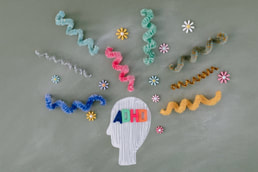 By: Afton Williamson, DNP, MSN, FNP-BC Many parents wonder if certain behavior patterns seen in their children might be due to Attention and Concentration Hyperactive Disorder, or more commonly known as ADHD. Symptoms of ADHD in children often start in early childhood. Parents may notice their child struggles to pay attention, fidgets, is hyperactive and impulsive in behaviors. Symptoms of ADHD present before age 12. In some children, symptoms may be present by age 3. ADHD is often diagnosed during early elementary school as this is when many of the symptoms and behaviors can present social and academic challenges for children with ADHD. The high levels of energy, struggles with attention, and impulsive behavior can make it difficult for children with ADHD to follow certain rules and structure in the classroom setting. Children may struggle with rules around not blurting out, staying on task in their seats, and starting and completing assignments. Socially, children with ADHD may not pick up on typical social cues and may also have challenges in taking turns and listening to peers. If you’re concerned your child may have ADHD and symptoms and behaviors are problematic for them at home and school, it’s best to follow-up with a mental health professional for further evaluation and management. Assessments completed by parents and teachers can help to confirm the diagnosis. Management of ADHD in children can include skill building and behavior interventions, stimulant and nonstimulant medications, and dietary modifications. It is important to recognize that treatment and management of ADHD may look different for each child based on parent goals for treatment and individual needs and responses to treatment. Families may opt for behavioral interventions and skill building prior to taking medications. Other families may decide it is best to start medications for their child at a younger age. Medications for some children may include stimulants while others may respond well to nonstimulant medication. Not all interventions for ADHD management are medication based. While controversial, some research suggests that certain dietary interventions may have positive benefits on ADHD behaviors. Physical activity of at least sixty minutes per day can improve a child’s cognition and psychosocial behaviors. Mindfulness based interventions have also been shown to decrease ADHD symptoms. If you have a child with ADHD, take time to celebrate their strengths as well. Children with ADHD can be very focused and creative in areas where they show interest. They are often energetic and spontaneous and can engage well socially with their peers. 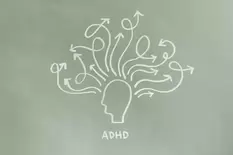 By: Afton Williamson, DNP, MSN, FNP-BC Attention and Concentration Deficit and Hyperactivity Disorder (ADHD) in adults can present differently than ADHD in children. If you are an adult with ADHD, you may have noticed symptoms lessening as you age, but other symptoms can still be very present and interfere with your work and daily living. In general, the symptoms of hyperactivity seem to lessen as people progress into adulthood. You may notice the constant need to fidget or moveabout you felt in school has decreased. On the other hand, symptoms of inattention may persist. Acting impulsive may persist into adulthood as well. Impulsive behaviors may be either in speech or actions. Other symptoms you may experience are extreme irritability and rapidly changing moods. You may experience difficulty regulating emotions. These symptoms can prevent a significant challenge in your work and social settings if ADHD is not managed. In the work setting, these symptoms may be manifested as forgetting meetings or tasks, struggling with time management skills, task completion, and organization. In the social setting, you may notice problems through impulsive speech or actions that can be hurtful and harmful to family and friends. As an example, a person with ADHD may be more likely to speed, violate other traffic laws, and interrupt friends and family. Adults with ADHD are at a much higher risk of having co-existing mental health conditions. Particularly, mood disorders such as depression and anxiety are much higher in adults with ADHD. When ADHD is not managed well, substance use disorders can also be prevalent. You can manage problematic symptoms of ADHD in a variety of ways. Prescription medication can help and includes both stimulant and nonstimulant medication. Supplements may also improve focus and impulsivity although these are less studied than traditional prescription medications. As an example, there is some evidence that Zinc can improve both symptoms of impulsivity and inattention. Therapy interventions including cognitive behavioral therapy, dialectical behavioral therapy, and mindfulness practices can also provide skills to help manage ADHD symptoms. Finally, it is important to remember that a diagnosis of ADHD comes with many strengths. Your ADHD is not just a disorder. If you are an adult with ADHD you may very likely have some of the following strengths that manifest themselves every day:
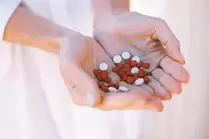 By: Jadon Webb, M.D., Ph.D. Modern medications have changed countless lives and enabled us to combat diseases that would have been disabling just a few years ago. Treatments for severe depression, generalized anxiety, ADHD, bipolar disorder, schizophrenia and now even misophonia are being made possible by the amazing new medications and other treatments we can now offer. But, just because you needed medication once does not always mean you need it forever! It is just as important to recognize when to start a medication as it is to know when to stop it. Yet, almost all medical training is geared towards starting or adding on medications, not stopping them. This should not be! Psychiatric medications can have powerful effects (and side effects), and should not be taken “just because”. There should always be a good reason, and if that reason fades away, it may be time to consider reducing or stopping. Bloom proudly supports the mission of deprescribing organizations such as the US Deprescribing Research Network. We are not affiliated with them, but have joined as members, and seek to practice according to these scientific principles that guide when and how to safely reduce unneeded medication use. They have a section with information for patients on deprescribing fromcertain medications, found here: https://deprescribingresearch.org/for-patients/ They also help advise clinicians on how to help taper off of medications, including antidepressants and other medications common used as help for depression, anxiety, and other common disorders. Helping patients live clean, natural, safe lives is the right thing to do. Part of this is having an eye out for ways to help deprescribe from medications that are no longer needed, and learning from those who have a similar vision!  By: Jadon Webb, M.D., Ph.D. We should be clear up front: big pharma has produced incredible, life saving treatments for innumerable diseases. This is also true for mental health, pharmaceutical industries have produced most of the medication help for depression, treatment of generalized anxiety disorder, help with ADHD, treatment of bipolar disorder, schizophrenia, and so on. We can all be very grateful for this! But in the meantime, it is also clear that big money can influence health care provider decision making. Gifts and payments from pharma companies have the potential to influence how a provider prescribes, for instance. If it didn’t, companies would not spend billions marketing to providers! Not all advertising is bad, of course, and to some extent can even be helpful and necessary to keep up with current treatments. But just the same, in mental health there are many drug treatments that are aggressively marketed, sometimes possibly beyond the actual advantage they may offer a patient over much cheaper generic alternatives. And the difference in cost between generic vs new medications can be enormous, sometimes a difference of 10 or even 100 fold! In other words, newer and flashier medications are not always better. But it is often hard to know for sure which treatments are best for you, and if a newer drug is better, which is why expert consultation with a provider can be so useful. It is also important to trust your provider, and understand what biases they may have in prescribing. If a provider receives significant compensation from a certain drug maker, it is important to keep this in mind when considering what treatment to try next. The government provides a searchable database so you can see what your provider received from the pharmaceutical industry. It is easy for patients to use: https://openpaymentsdata.cms.gov/ Keep in mind that small “payments” happen all the time, and can show up even if a drug rep brings lunch to a practice. It is almost impossible to avoid these small interactions from time to time, especially if working in a larger health care system, and it does not necessarily suggest anything nefarious. Larger payments can also be totally benign, as many physicians even help with drug development trials, and may also have good conflict of interest policies in place so that their prescribing stays ethical and consistent. If your provider receives large, consistent payments related to any prescribed to you, it may be worth asking your provider about this, and how they ensure that any financial conflict of interest is discussed and handled properly. 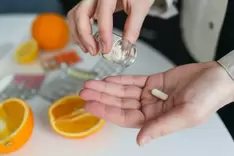 By: Jadon Webb, M.D., Ph.D. COVID has caused quite a wave of destruction on all of us, both physically and for our mental health. At Bloom, we saw huge increases in clients needing help for depression, generalized anxiety disorder, PTSD, obsessive compulsive disorder, and even ADHD (school and work got way less structured!) For now, it looks like COVID is taking a bit of a break as we head into spring. But chances are good that it (and perhaps another variant) will make another pass through, perhaps even later this summer if past trends hold up. As weary as we are, we need to be ready. Amazingly, several studies (e.g. here, and here, and good commentary here) have shown that two generic, commonly used antidepressants (fluoxetine and fluvoxamine) might have COVID-fighting activity. The use of these antidepressants was associated with less severe illness, and potentially less chances of catching it in the first place. If this holds up on repeat studies, especially on larger Phase III clinical trials, this will be a major development in our war against this awful disease. Treatments of depression and generalized anxiety can be complicated to select. Dozens of different antidepressant and mood stabilizing medications are available, and it can be difficult to choose from among them. But as we move through this next season and consider how to fight depression, anxiety, PTSD, obsessive compulsive disorder, and other mental health conditions, it may be worth considering whether a particular medication may also have activity against COVID. This will be especially important to consider if another wave hits. We want to caution that this is still an area of ongoing research, and cannot substitute for individual medical advice, and we definitely do not advocate changing or stopping treatments based on this! But it may be worth talking to your provider about how certain medications are stacking up against COVID, particularly if you have particular vulnerabilities to it.  By: Shannon Keane, MSN, FNP-C, PMHNP-BC Chronic sleep problems are prevalent in our modern society. Recent studies suggest that approximately 56% of Americans suffer from sleep problems, in comparison to 31% of Western Europeans and 29% of Japanese. Sleep problems are an evolving global public health concern. Poor sleep is known to be correlated with reduced motivation, emotional dysregulation, and cognitive dysfunction. Not only is our mental health affected by poor sleep, but our physical health can also be affected by poor sleep patterns. In a typical night, a person goes through 4-6 sleep cycles. Each sleep cycle is composed of 4 different stages. The first 3 stages are non-rapid eye movement (NREM), and the 4th stage is rapid eye movement (REM). During REM sleep, brain activity increases while the body experiences temporary paralysis of the muscles. Although the body muscles are temporarily paralyzed, the eyes and the muscles around the lungs keep functioning. The eyes typically can be seen moving quickly under the eye lids, hence the name, “rapid eye movement”. REM sleep has been studied to be essential to functions in the brain like memory, learning, and cognitive functioning. We can identify if we reach REM sleep if we experience vivid dreams. These vivid dreams are explained by a significant increase in brain activity. Although, it’s important to note that dreams can occur in any of the 4 sleep stages, but they tend to be less common and intense in the NREM stages. Typically, one doesn’t enter the REM sleep stage until after 90 minutes of sleep has been reached. All sleep stages are important, but REM sleep is particularly important because of its vital role in memory, emotional processing, and healthy brain development. Adequate sleep hygiene is a great initial step to tackle our sleep issues. It is essential that we practice healthy sleep habits to ensure that we attain restful deep sleep every night.
 By: Shannon Keane MSN, FNP-C, PMHNP-BC A study published in April 2022 demonstrated that ketamine treatment may be able to help patients who suffer from alcohol use disorder (AUD). The study demonstrated that a minimum of three ketamine infusions was associated with more days of abstinence from alcohol compared to the control group at the 6-month follow-up mark. The researchers found that it was important to include mindfulness-based relapse prevention therapy alongside of ketamine therapy to maximize results. This study was conducted as a double-blind placebo-controlled phase 2 clinical trial. The researchers studied 96 patients with severe alcohol use disorder who were all detoxified adults. The 96 participants were randomly assigned to one of the following four conditions:
All 96 Participants were provided with an alcohol diary to record their alcohol use throughout the process. The outcomes of the study were based off of self-reported days abstinent from alcohol. The outcomes showed that participants in the ketamine group had a significantly greater number of days abstinent from alcohol compared with the placebo group at 6-month follow-up. Ketamine Infusion therapy might be a great additional tool to help those who suffer with alcohol use disorder after they have detoxed from alcohol safely. Learn about Ketamine Therapy at Bloom Mental Health  By: Jadon Webb, MD, PhD With all the news about the state of the economy, and trying to reckon with years of dramatic changes from COVID, stress continues to plague us at home, school, and work. High stress also increases the risk of generalized anxiety disorder, major depression, PTSD, and other illnesses. There are a number of effective, prescribed treatments for conditions such as depression and generalized anxiety. Many of our clients also inquire about using over the counter, natural, and other alternative drugs and supplements. One of the most popular alternative drugs being used is phenibut. Phenibut is a synthetic drug that was developed in Russia, and is similar in chemical structure to the neurotransmitter GABA. It acts most similarly to the prescription drug baclofen, which is used in the United States. Phenibut is in a legal gray area in the US, and was technically legal to possess as of this writing, but has major restrictions on being manufactured and sold. Phenibut is often used for insomnia and anxiety. On the internet, many users give it high marks for efficacy and tolerability. It often produces a feeling of reduced anxiety, while sometimes even increasing focus and attention. But that said, we urge great caution as it is a powerful drug that can cause dependence and can have serious side effects if misused. If you are using phenibut or interested in it, definitely let your provider know! It is an important substance that, for better or worse, is playing a big role in how our community is addressing a wave of stress and anxiety. 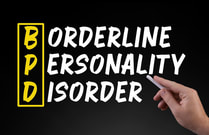 By: Jadon Webb, MD, PhD Borderline personality disorder is one of the most misunderstood (and sometimes even feared) diagnoses, even though it can have a great outcome! One of the most controversial aspects of borderline personality is whether it can be diagnosed in those under 18 years of age. Patients (and even many clinicians) often believe that borderline personality disorder (BPD) cannot ever be diagnosed under age 18. We have even come across mental health teachers in academic settings who believe this! But this is not true. BPD absolutely can - and should - be diagnosed in adolescents when it fits criteria. To drive this point home, a major study published in Feb 2022 in JAMA Psychiatry (a prominent journal) looked at effective therapy treatments for people diagnosed with BPD as young as age 15. If one of the top psychiatric journals in the world includes 15 year-olds diagnosed with BPD, this can help end the debate and ease the minds of any that are worried about whether adolescents can be diagnosed. We feel it is essential to accurately diagnose the true problem, and unfortunately many youth get inaccurately diagnosed as having “bipolar”, depression, ADHD, or other diagnoses when the true diagnosis is BPD. This can have serious consequences. Inaccurate diagnoses can lead to years of unnecessary medications and psychotherapy that is aiming at the wrong core problem. If an adolescent is suffering from the severe emotional instability that can come with BPD, they deserve a proper diagnosis, no matter the age. We hope to see the culture shift this way in the years to come! |
about the authorSJadon Webb, M.D., Ph.D.
Owner Bloom Mental Health Shannon Keane,
MSN, FNP-C, PMHNP-BC Clinical Director Disclaimer: this blog is NOT intended as medical advice and does not imply any kind of specific guidance or treatment recommendations, and should NOT be used to guide a treatment protocol. (read full disclaimer)
Afton Williamson,
DNP, MSN, FNP-BC Family Nurse Practitioner |
Location |
|



